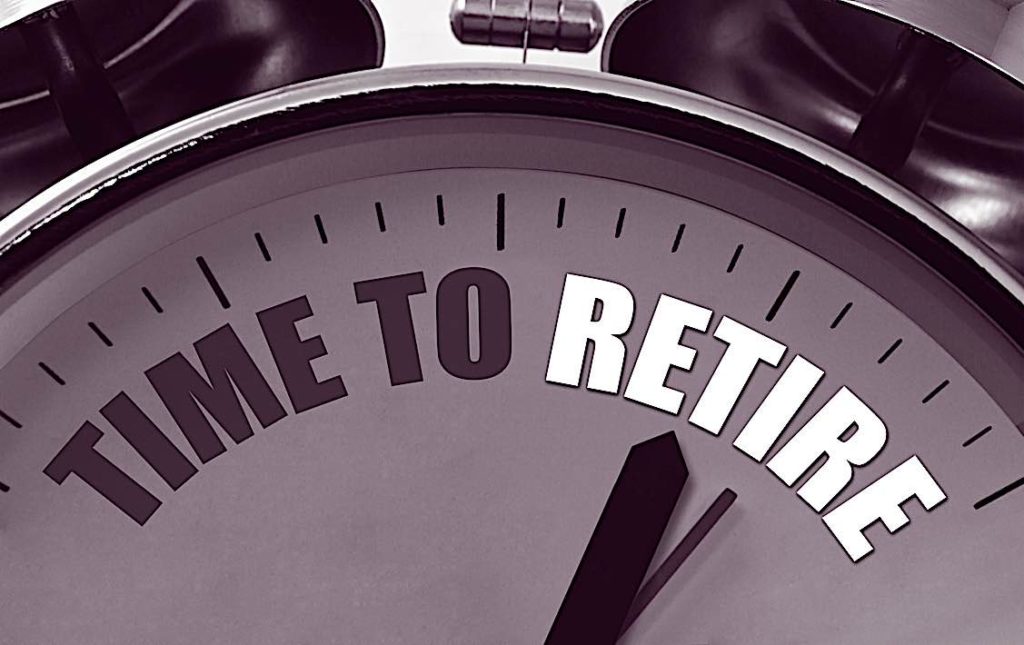
“Great Retirement” may compound the “Great Resignation” as record numbers of employees approach retirement age
“The Great Resignation” brought many challenges to employers and HR managers alike — and HR Management and recruiting issue compounded by the record numbers of people approaching retirement age. Now, HR Managers now must cope with the “The Great Retirement” as well, with the largest approaching retirement demographic in history. The timing certainly makes skilled HR Management and HR Recruiting vital — at a time when many employees are leaving their current jobs and seeking new opportunities that offer them higher pay, a more relaxed lifestyle, and a better work-life balance.
It’s not just millennials who are making waves in the workplace with the “Great Resignation.” An increasing number of baby boomers are fast approaching retirement age and getting ready to leave their jobs behind — let’s call that “the Great Retirement.” Employers need to be aware of the impact this will have on their business.

HR Managers now must juggle the demands of “millennials” in terms of their career goals, priorities, and if employers are doing enough to address their needs. Many retention strategies have been focused on this group of the population in an effort to keep them happy and engaged in their work so that companies can retain their talent. Now, HR Managers and management companies must deal with the looming “Great Retirement.”
Age in the working population
The data is clear, the population is aging, and with it, the workforce. According to Statistics Canada (StatCan), 64.8 percent of the Canadian population falls under what we consider to be the working age, from 15 to 64 years old, and 21.8 percent are now aged between 55 to 64. This represents an all-time high in the history of Canadian censuses. [1]
Not only is the population aging, but it is also shrinking.
By 2030, the last of the baby boomers will have turned 65 and moved out of the working-age population, to be replaced at the top of the age bracket by Generation X. Gen X is a smaller population, so the absolute number of employees approaching retirement age is expected to decline in the next few years.

Population decline and its effect on the workforce
According to StatCan, it looks like the size of the working-age population will be declining for some time.
- In the past five years, from 2016 to 2021, the number of children under the age of 15 grew at a rate six times slower than the number of adults aged 65 and over.
- The number of Canadians 65 and over exceeded the number of children under 15 for the first time in 2016. The gap was 96,000, and since then, it has gone up to one million in 2021.
- This is in line with the decrease in the fertility rate of Canadian women that’s been observed since 2016, with the number of children under the age of five falling 3.6 percent by 2021.
- That decline in young children is a reflection of the decline in the total fertility rate, which reached its lowest point of 1.4 children per woman in 2020.
- Not only does the fertility rate not show any signs of recovery, but it will likely fall even further in the coming years.
According to StatCan, one in five Canadian women reported that they planned to delay any plans to have children because of the recent COVID-19 pandemic.

The effect of employees nearing retirement age and the labour shortage
As more employees near retirement age, employers are worried that this will be an additional factor aggravating their current shortage of workers.
To make matters worse, it’s likely that many employees retiring will leave a considerable gap in skills, know-how, and overall experience that cannot easily be replaced.
However, a study by RBC has shown that almost one in five (18 percent) of Canadians aged 50 and over are planning to push their retirement date. [2]
The data shows that, worryingly, 50 percent of this group have not established a financial retirement plan at all, with just 20 percent having a formal plan created with a financial advisor.
Of those that do have a financial plan for retirement, most acknowledge that they do not have sufficient assets.
As life expectancy grows, 21 percent of those who have over $100,00 in investable assets expect to outlast their savings by ten years.
This is why many choose to keep working past their retirement date, whether by choice or, more likely, out of necessity. This is bad news for them, as a study from BMO Financial Group found that 23 percent of the 1,500 adult Canadians surveyed were looking to retire early, ideally at the age of 54, but good news for employers.
In the middle of the labour shortage, this is a small silver lining — not taking away yet another potential pool of workers for employers to draw from.
Retirement crisis
What seems clear is that the current retirement system is not working for a large portion of the population and will only become more of a problem in the future as the population ages.
A new report has found that two-thirds of Canadians feel that the country faces a retirement crisis. [4]
The main drivers for this are:
- 63 percent of survey respondents declare that they haven’t set any money aside for retirement in the past year.
- 65 percent stated that the problem is that saving for retirement is prohibitively expensive.
- 38 percent of respondents stated that they are living paycheque to paycheque, making this the top reason why people are not saving more.
- 48 percent of Canadians are “very concerned” about not having enough money saved for their retirement, a number higher than those worried about mental health, debt, or job security.
As employers, there are some things you can do to help your employees be ready for retirement.
Helping employees be retirement-ready
The first, and most obvious solution, is to offer a workplace pension plan. This will not only help your employees save for retirement but also attract top talent to your company.
Over three-quarters of Canadians (77 percent) surveyed say that employers have a responsibility to provide a pension plan for employees, with 85 and 84 percent respectively stating that workers should have access to affordable and efficient retirement savings.
As a sign of how important this is for them, just over 7 in 10 employees (71 percent) would prefer to forgo a higher salary in exchange for a better pension plan.
The truth is that the COVID-19 health crisis has hit younger and lower-income Canadians the hardest, precisely the segments of the population that were struggling the most to save for retirement in the first place, according to David Coletto, Abacus Data CEO.
From a pure talent management point of view, it looks like the threat of mass retirement isn’t likely to materialize in the next few years, buying employers some time to come up with strategies to attract new talent in these challenging times.
And in the meantime, by helping employees save for retirement, employers will not only be doing right by them but also ensuring that their overall benefits package is more attractive to potential new hires.
Do you need help with HR Management or Recruiting? Ask the experts at Pivotal Solutions
Contact Pivotal
NOTES
[1] https://www.hrreporter.com/focus-areas/people-analytics/record-number-of-workers-approaching-retirement/366183
[2] https://www.hrreporter.com/focus-areas/compensation-and-benefits/nearly-1-in-5-canadians-planning-to-postpone-retirement/359300
[3] https://www.hrreporter.com/focus-areas/compensation-and-benefits/how-much-money-do-people-need-to-retire/364041
[4] https://www.hrreporter.com/focus-areas/compensation-and-benefits/are-we-headed-for-a-retirement-crisis/357277


 Our HR solutions experts can recommend the right mix of HR outsourced services to make your entry into Canada easier.
Our HR solutions experts can recommend the right mix of HR outsourced services to make your entry into Canada easier.  Pivotal Employment Management Services co-hires your workforce, simplifying entry of your business in Canada.
Pivotal Employment Management Services co-hires your workforce, simplifying entry of your business in Canada. 















